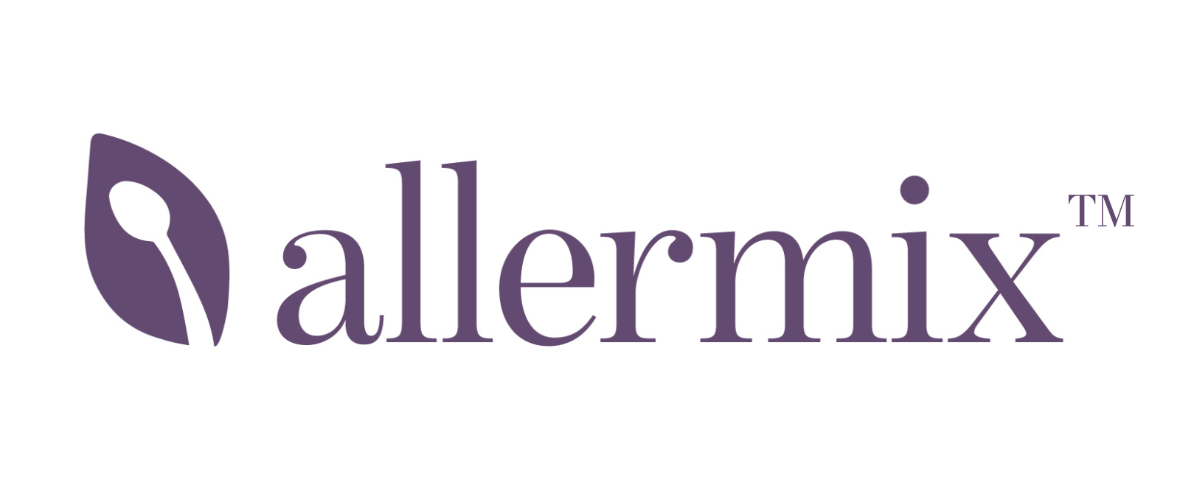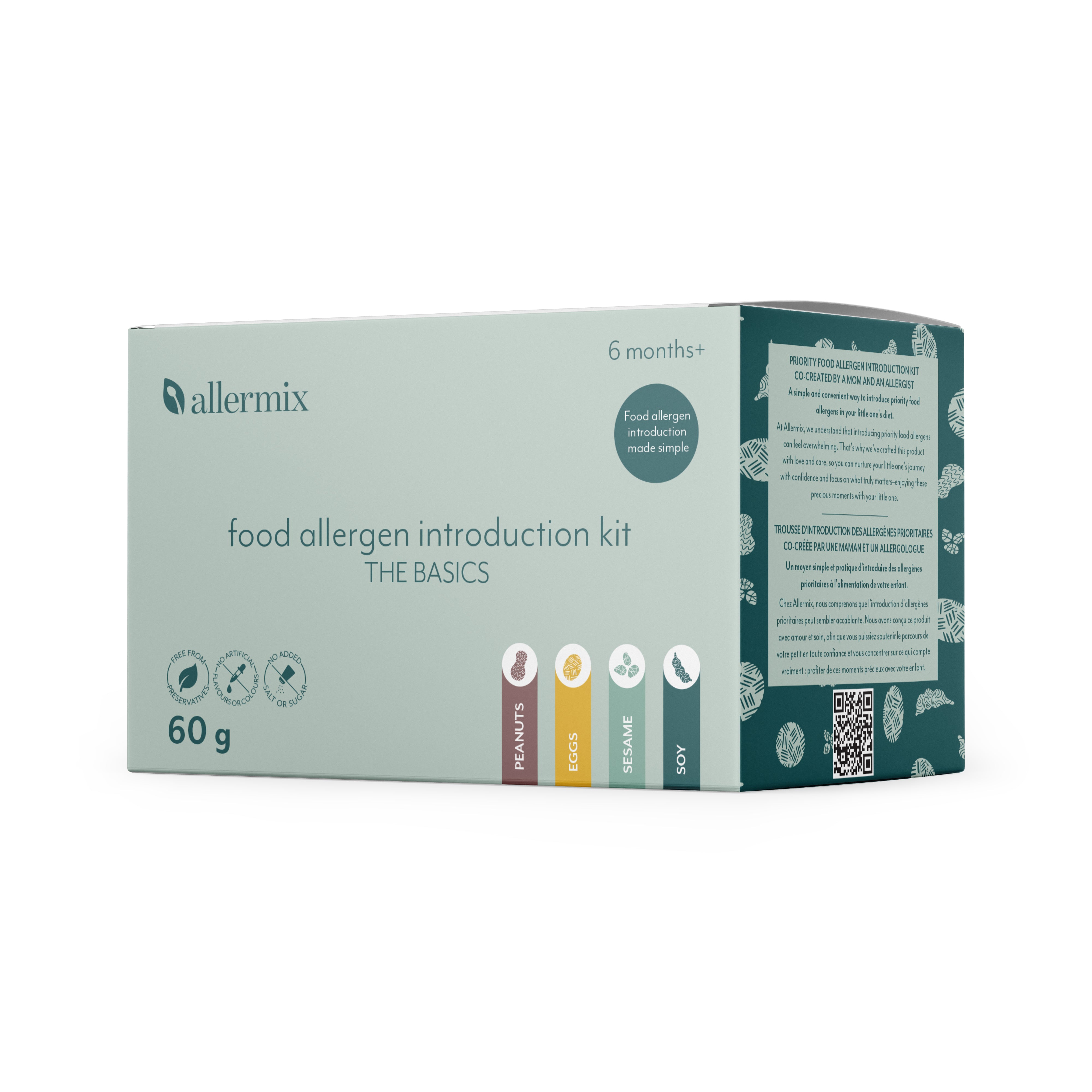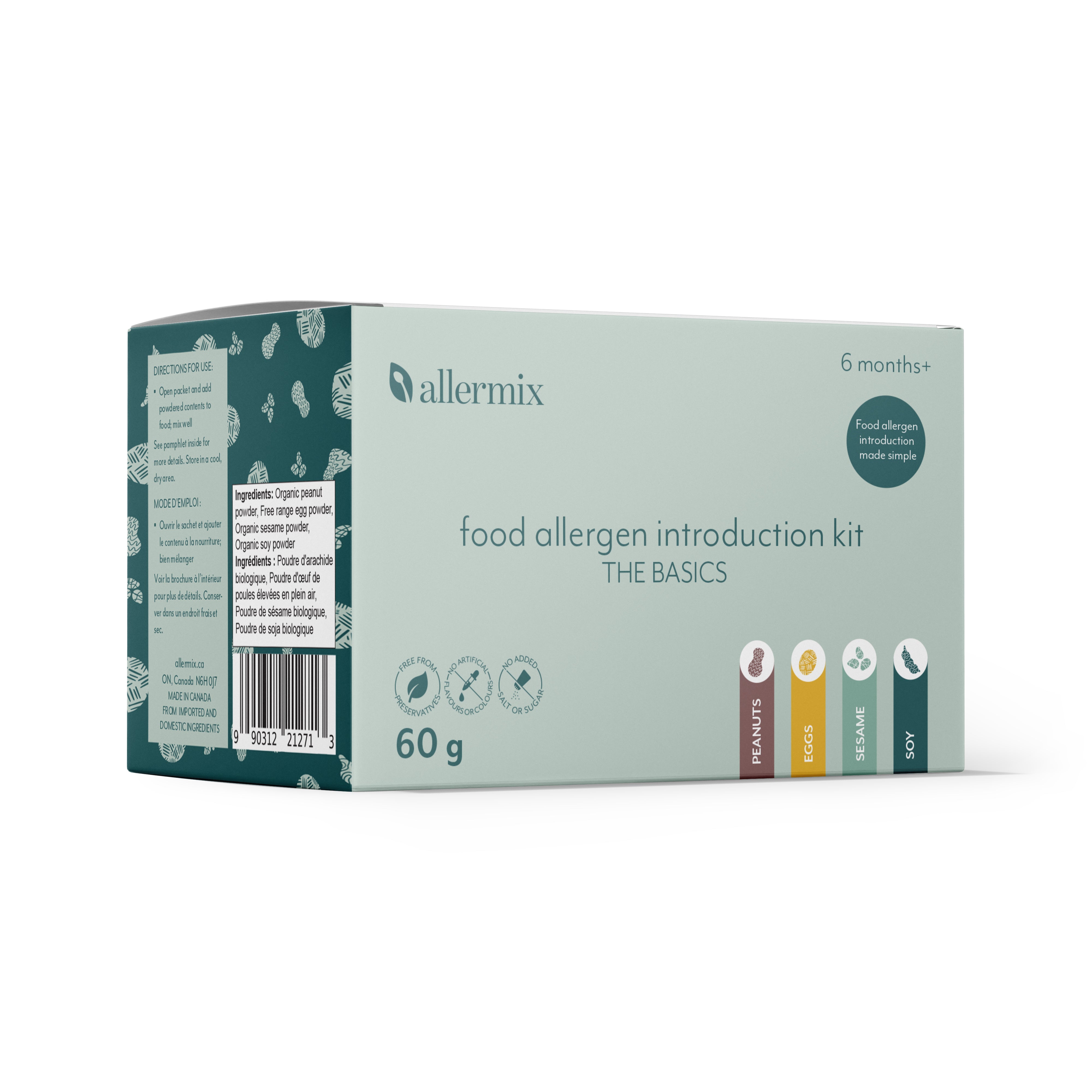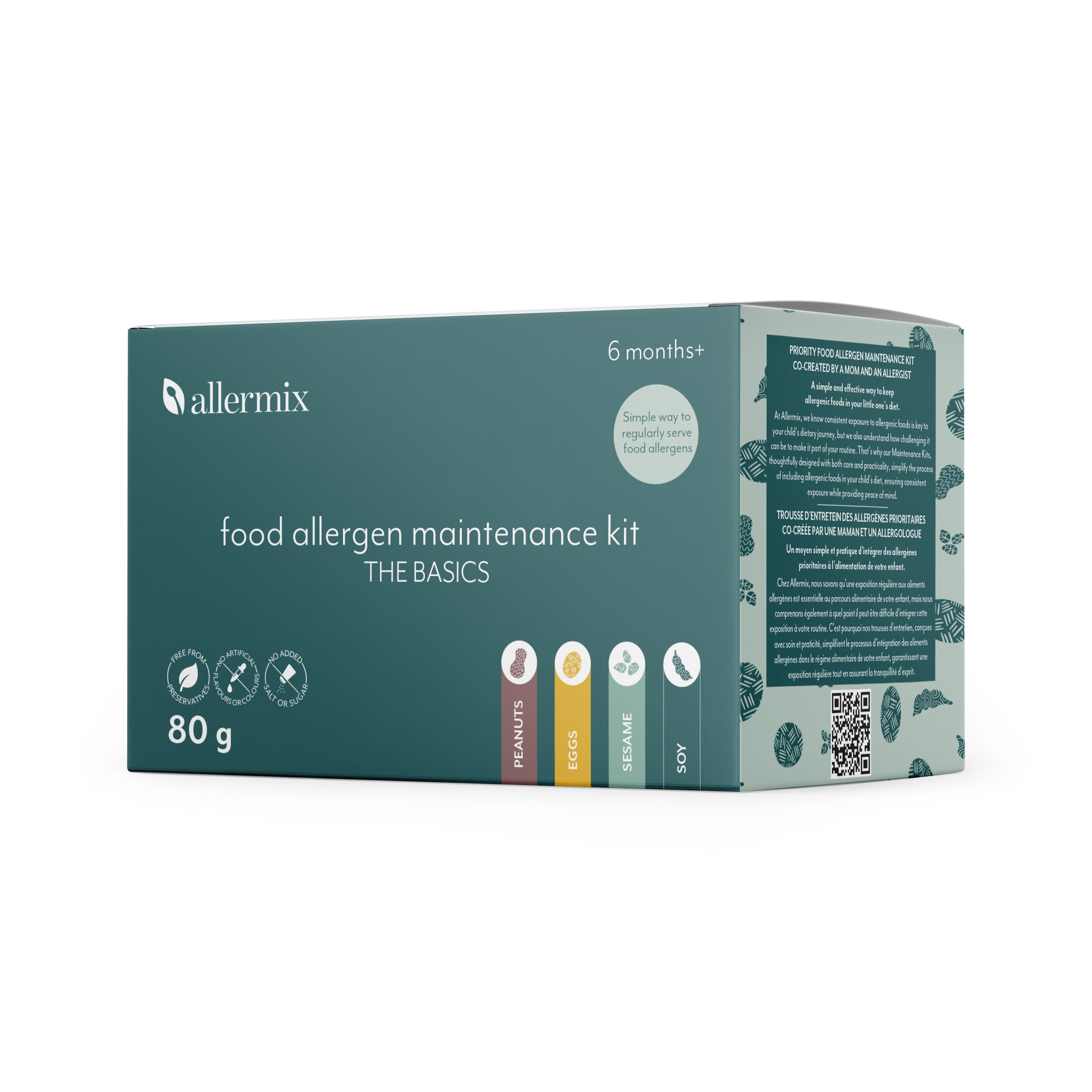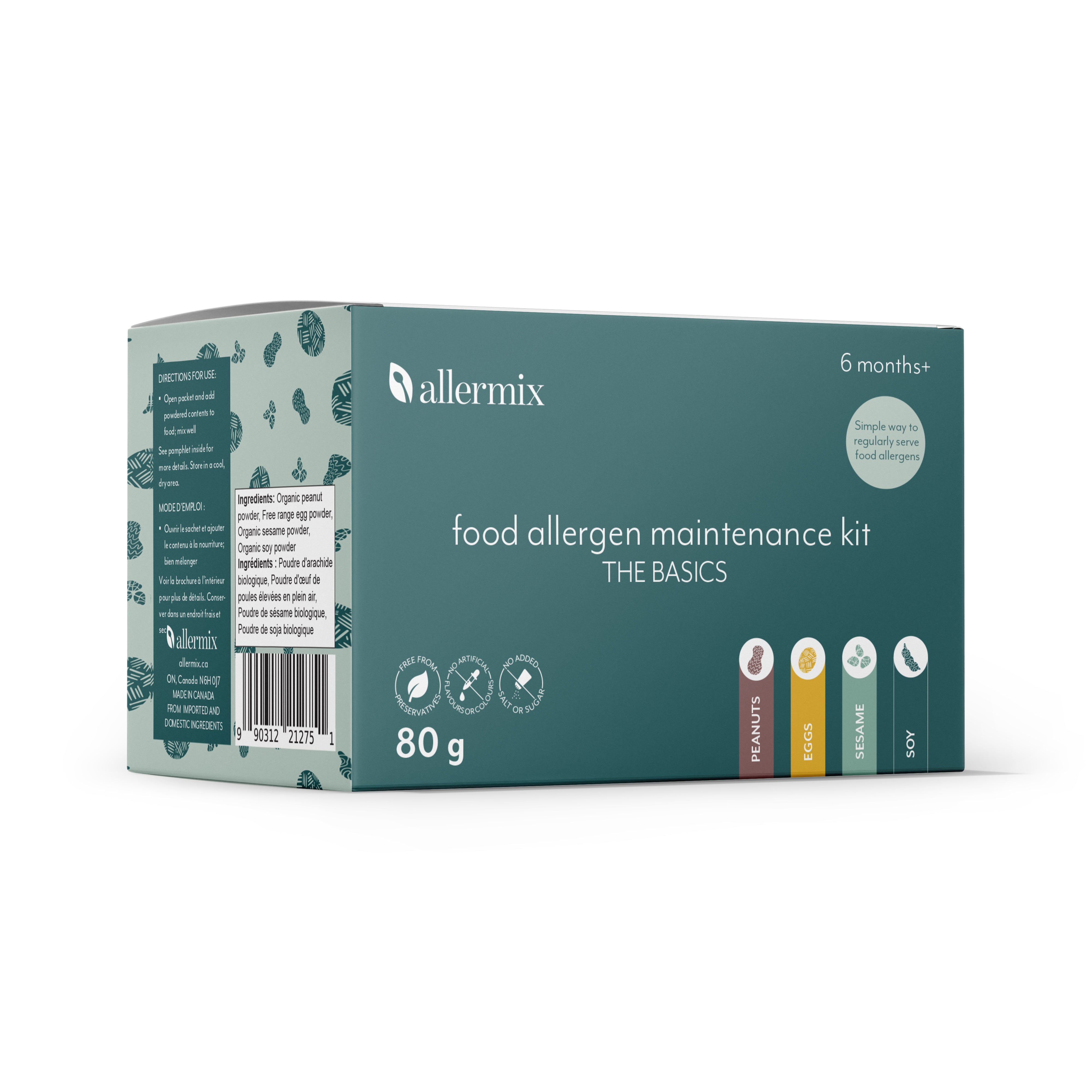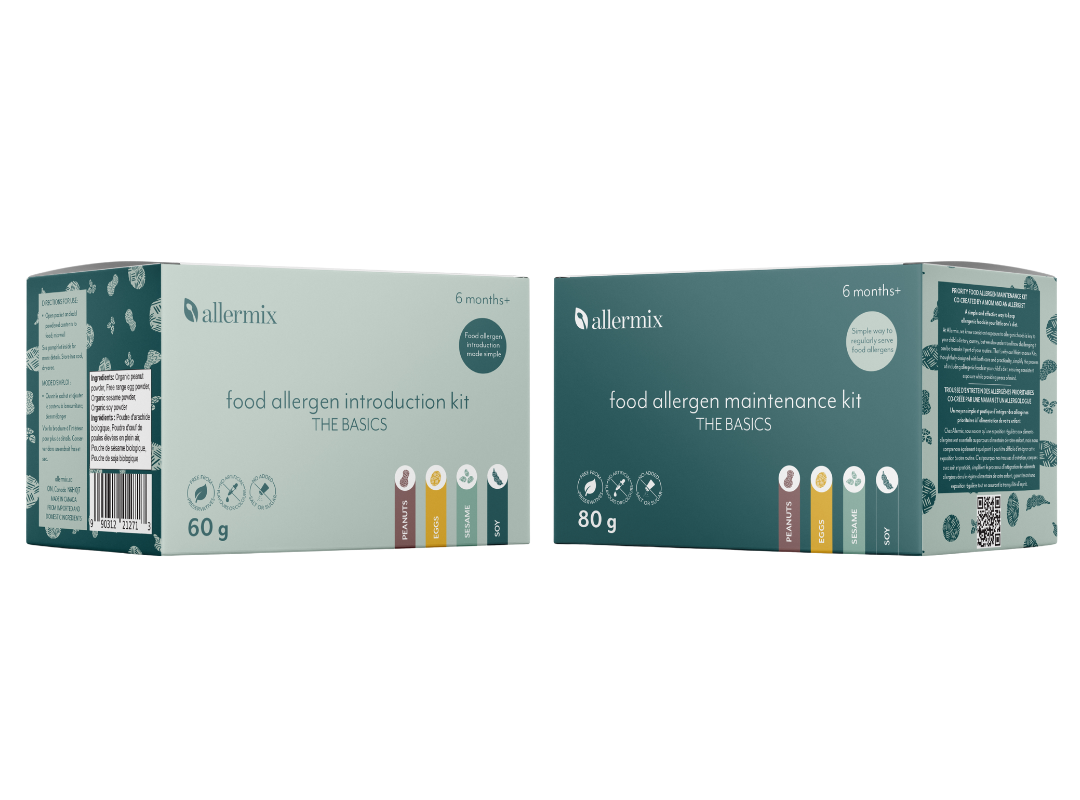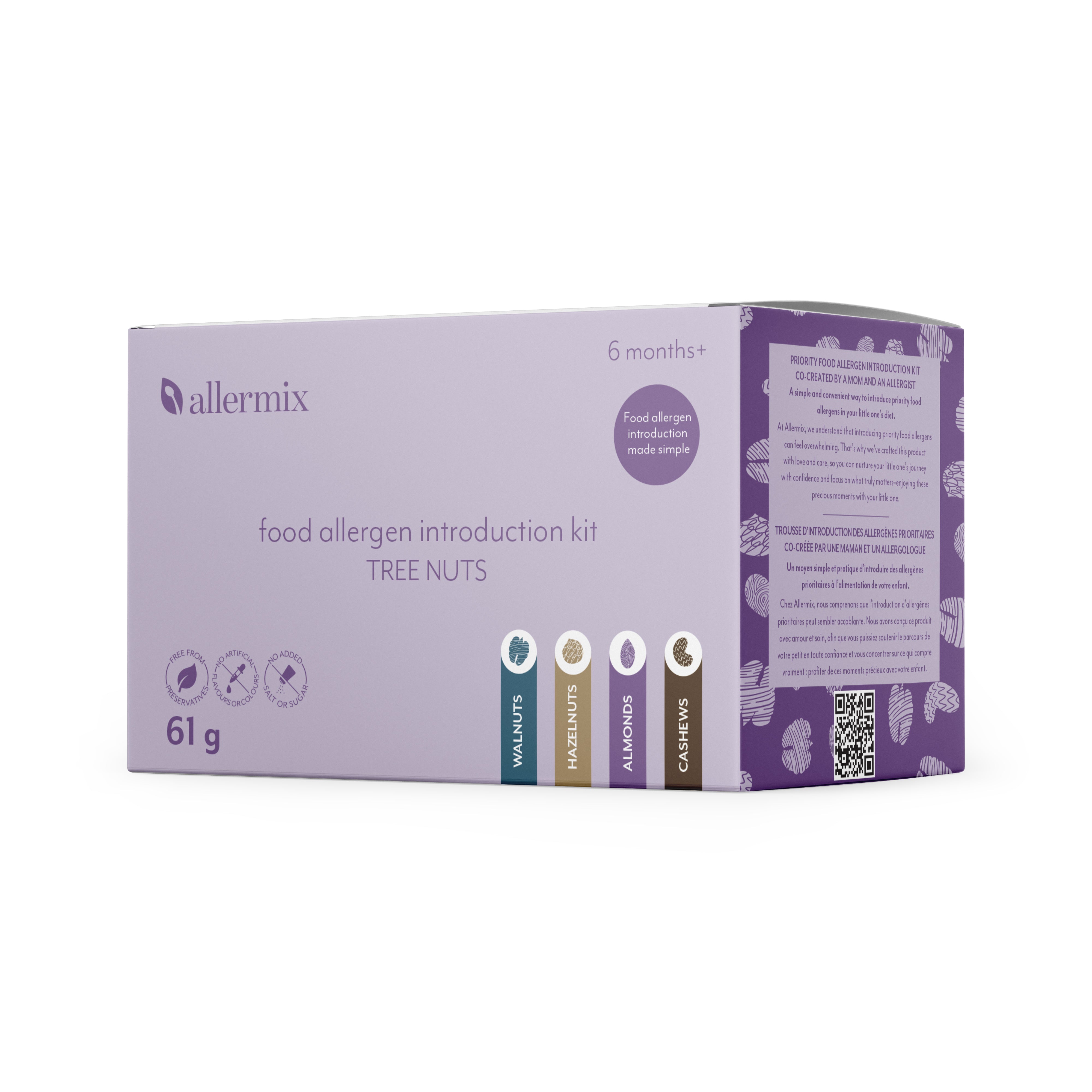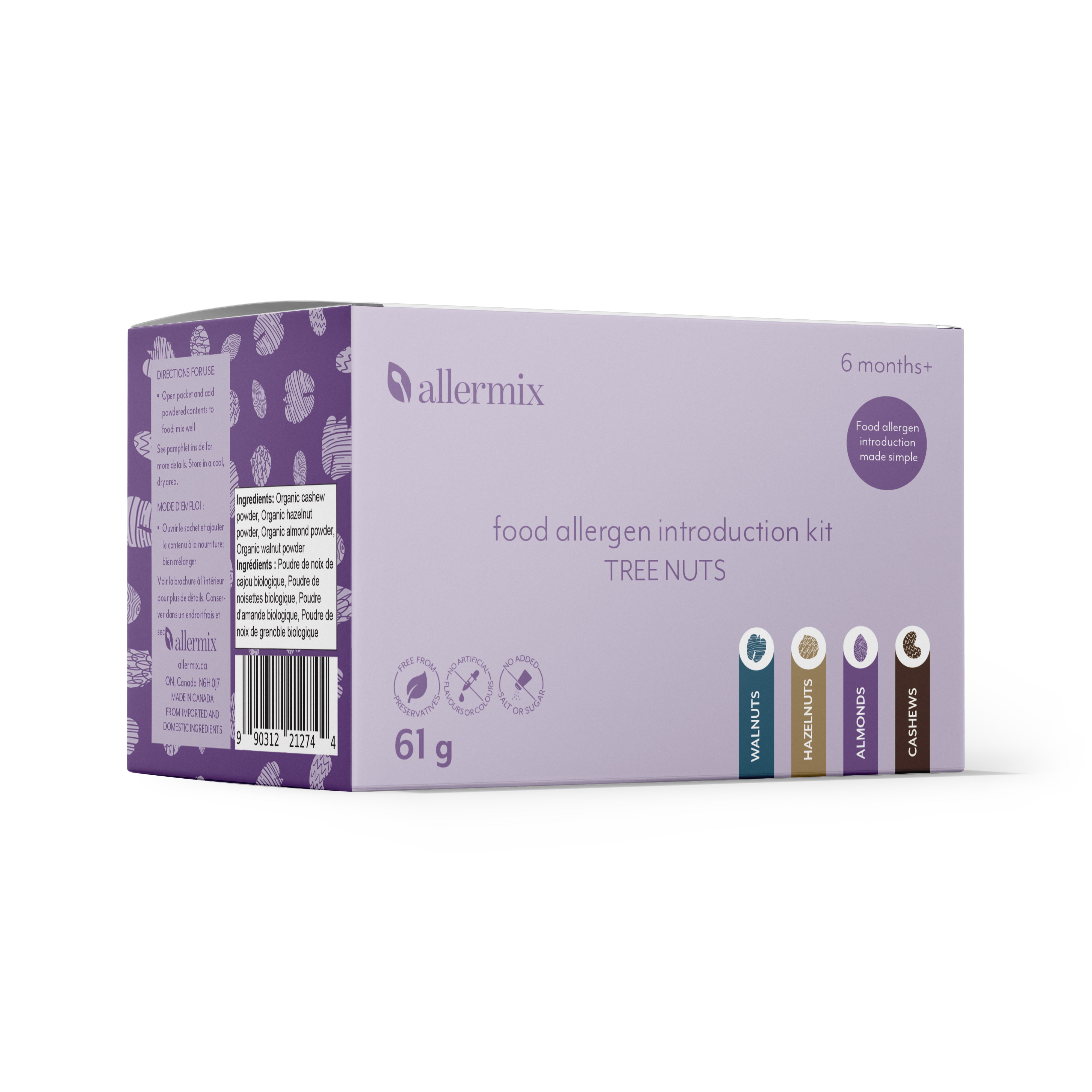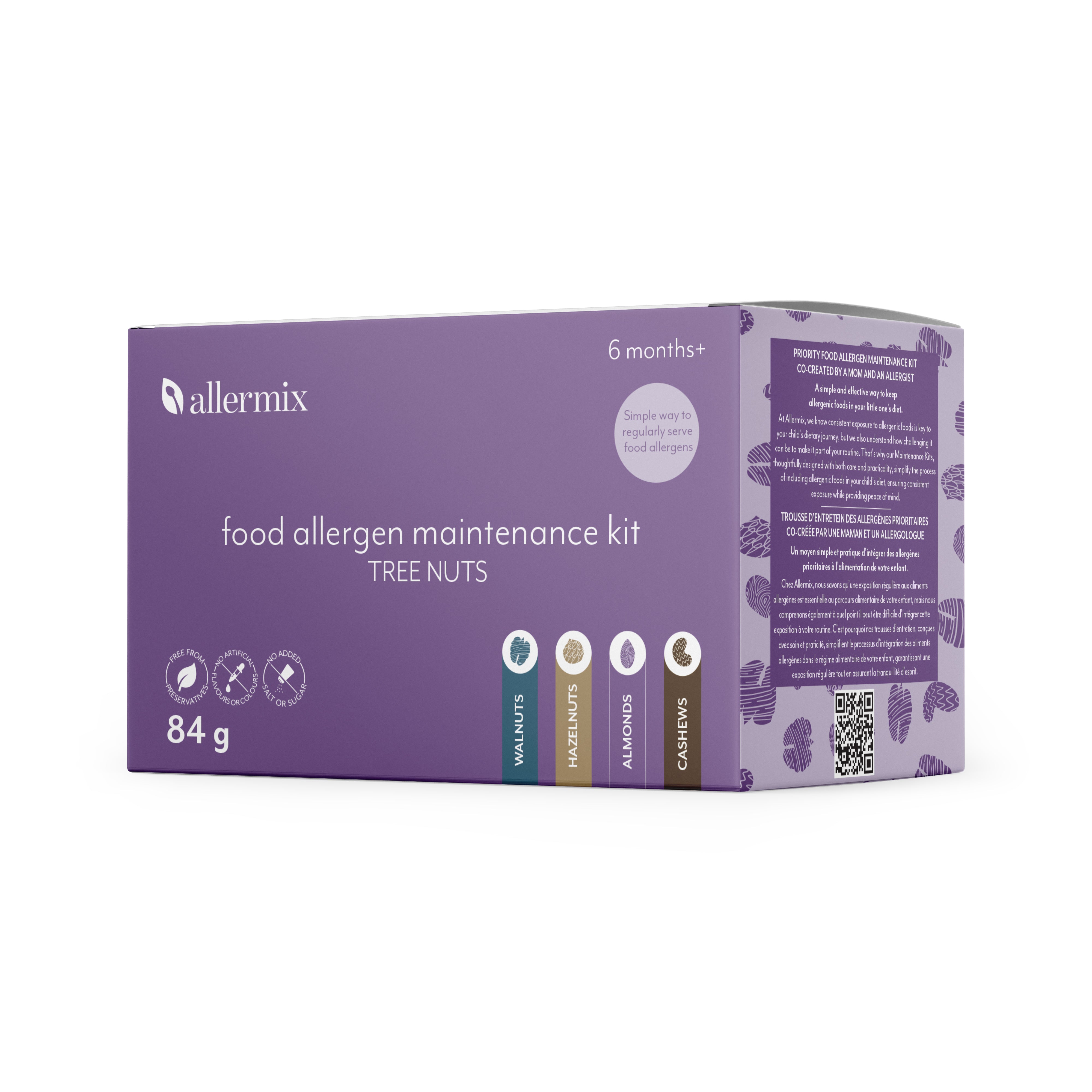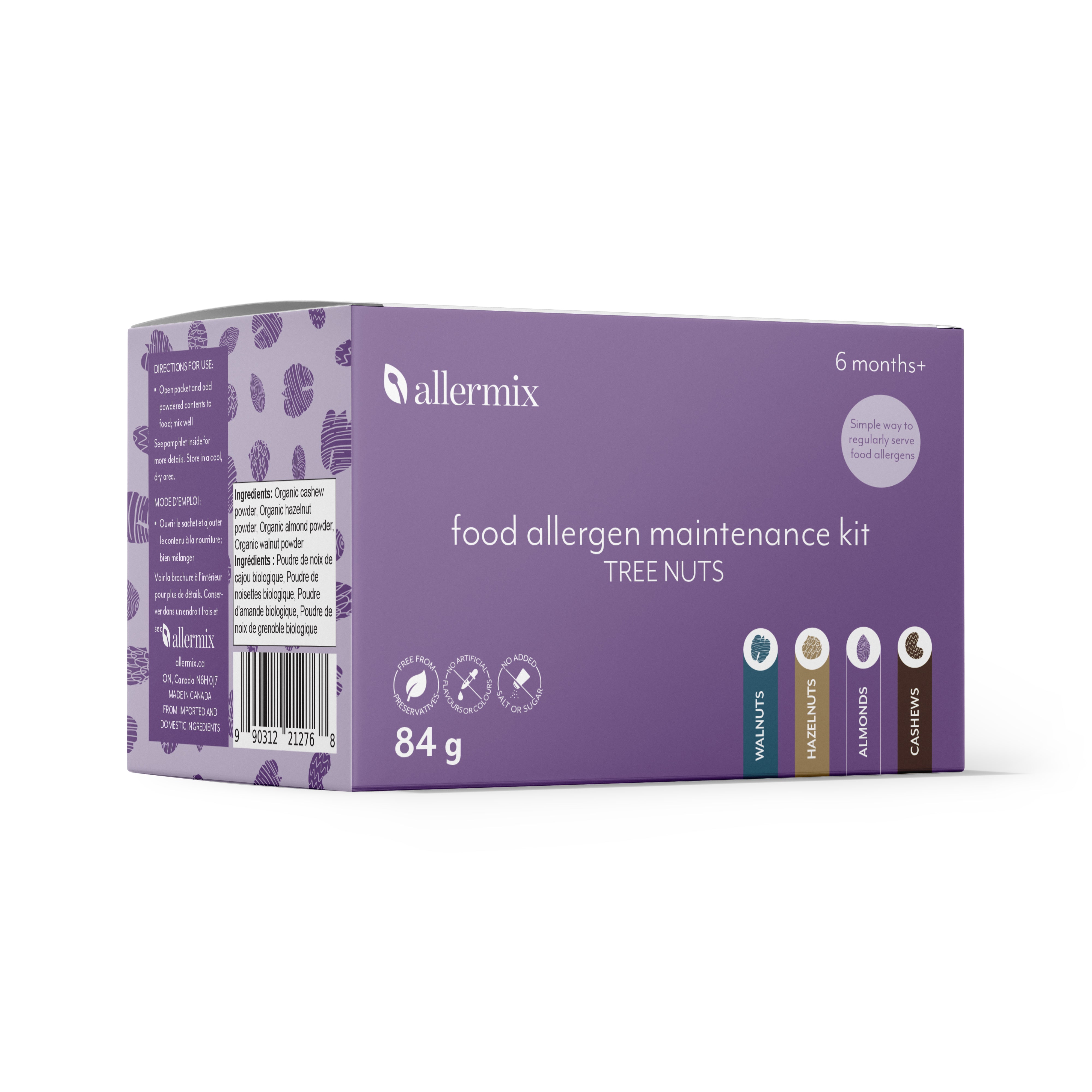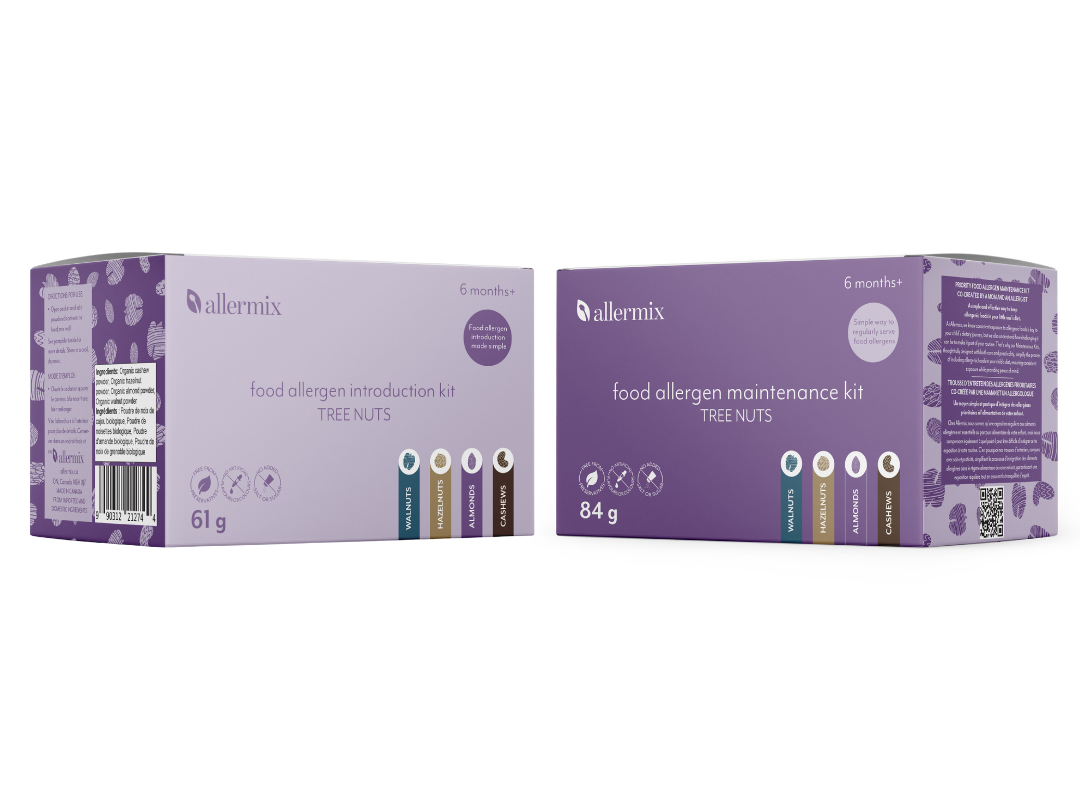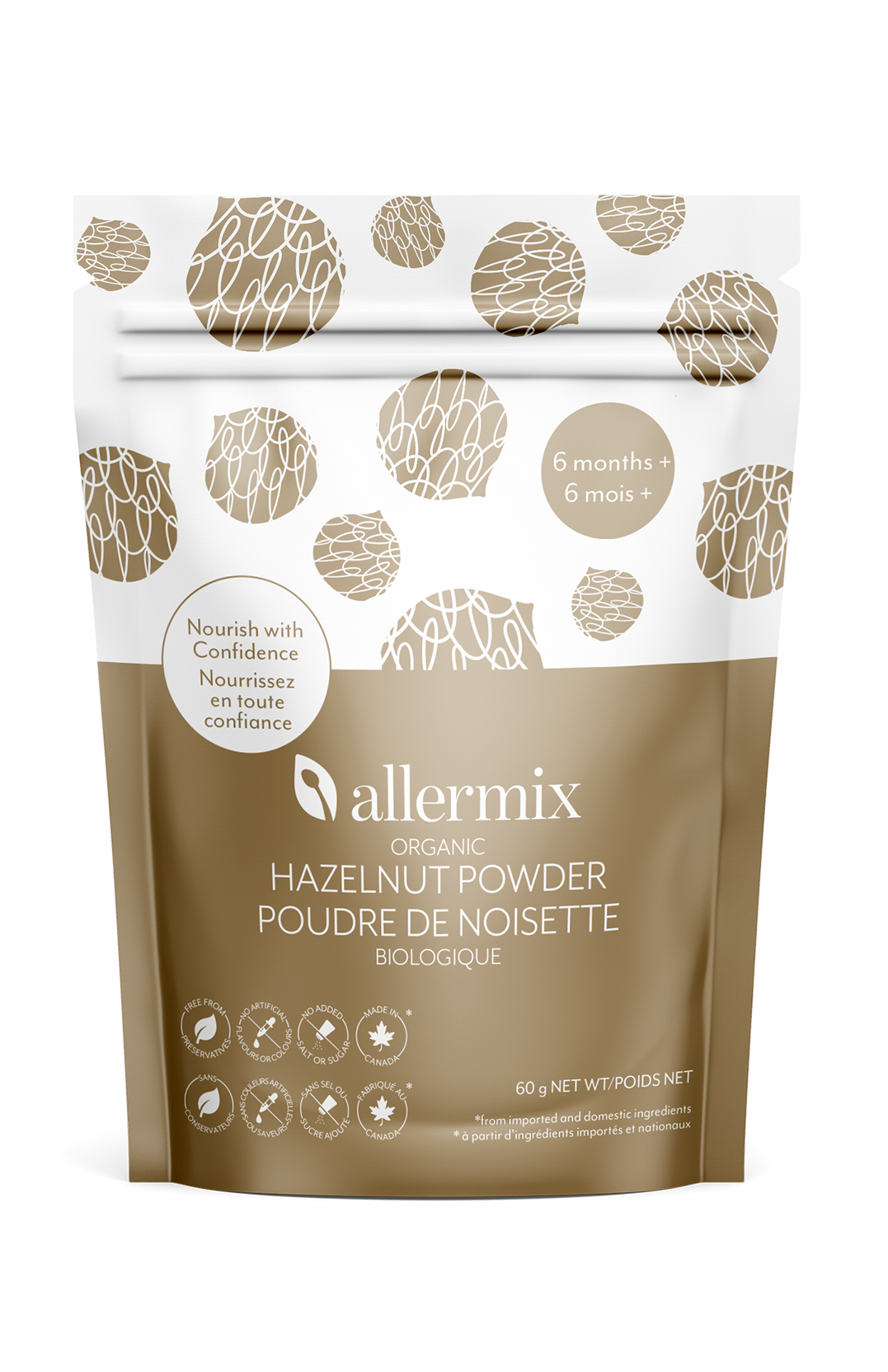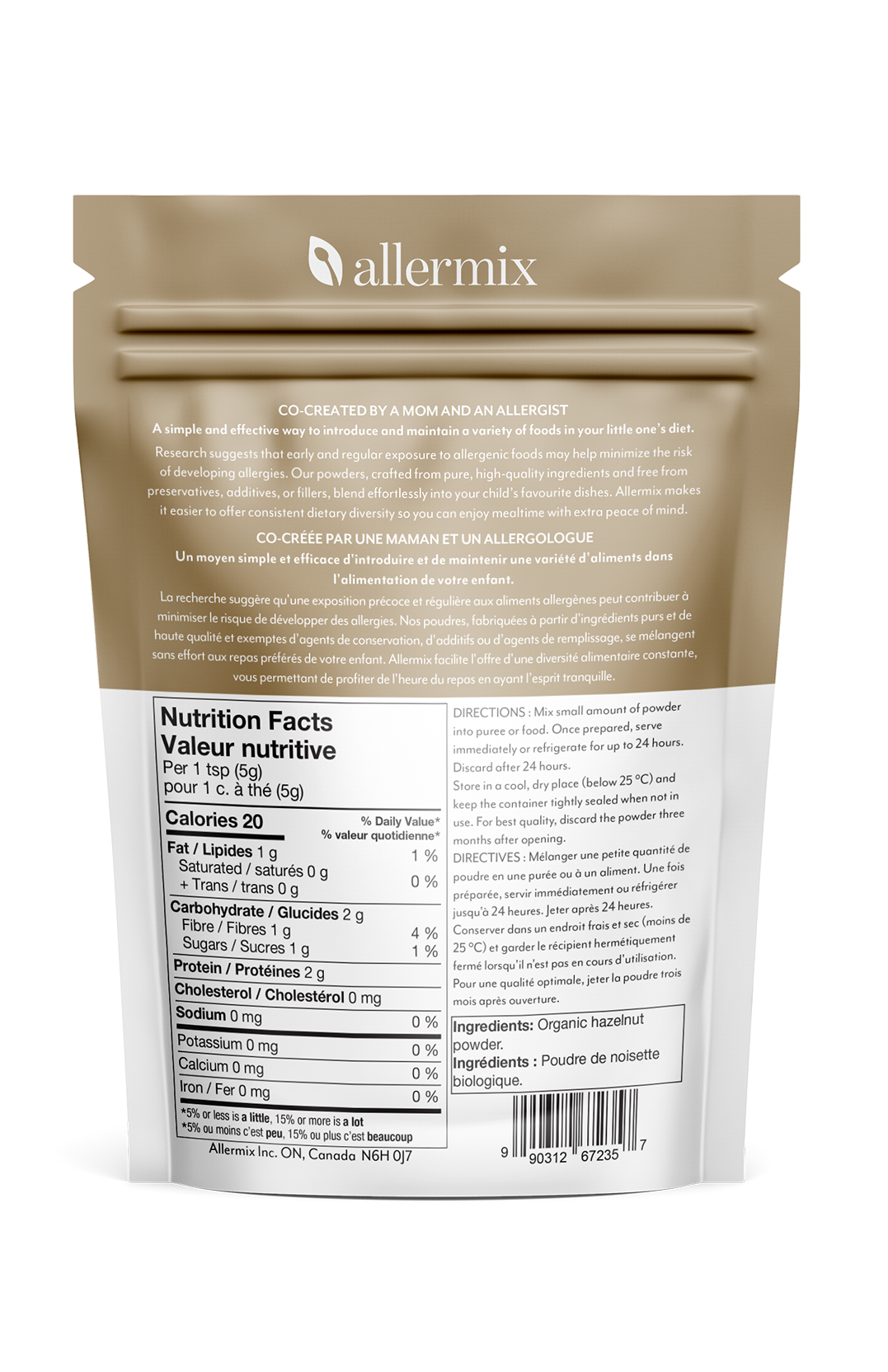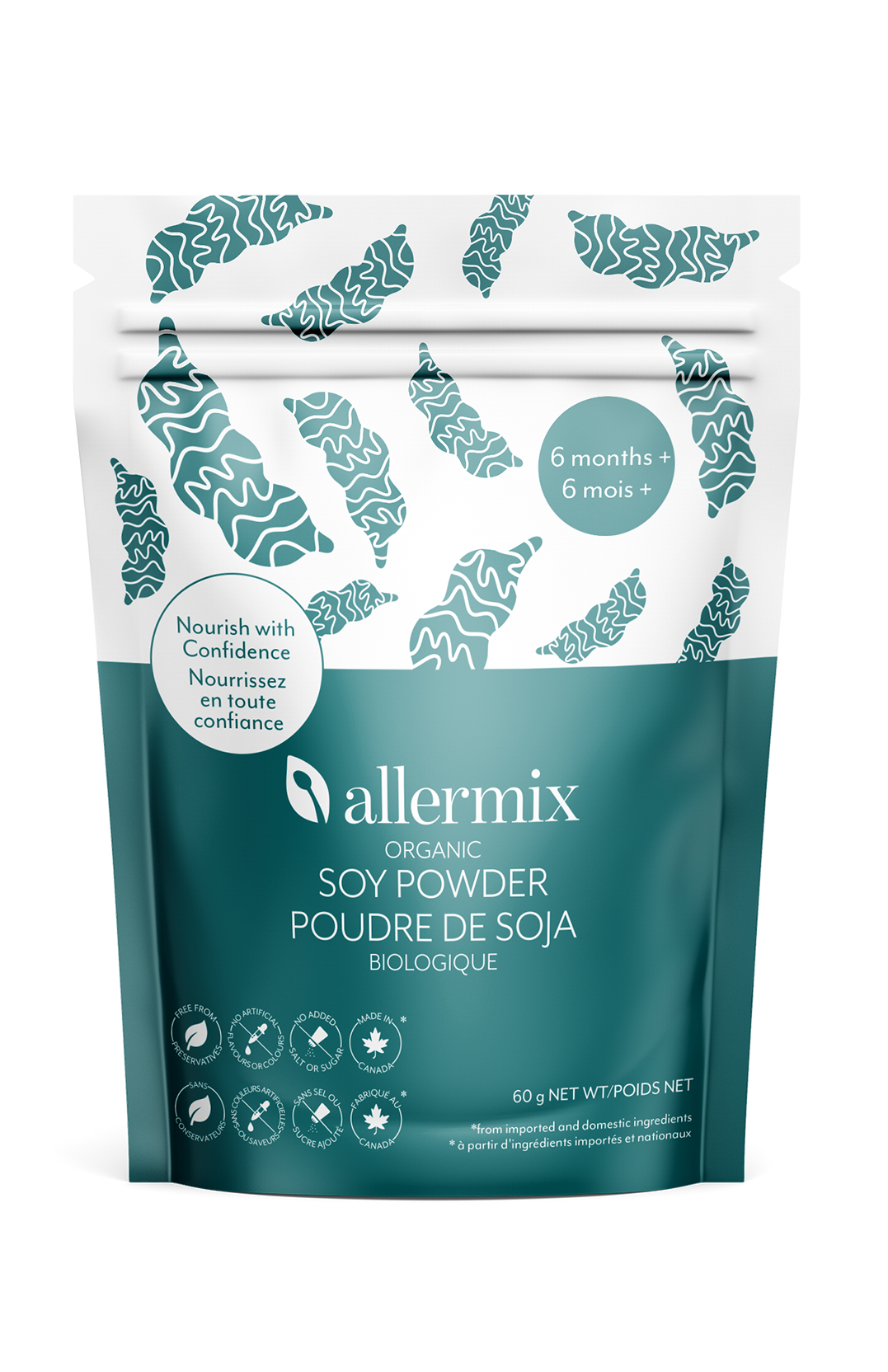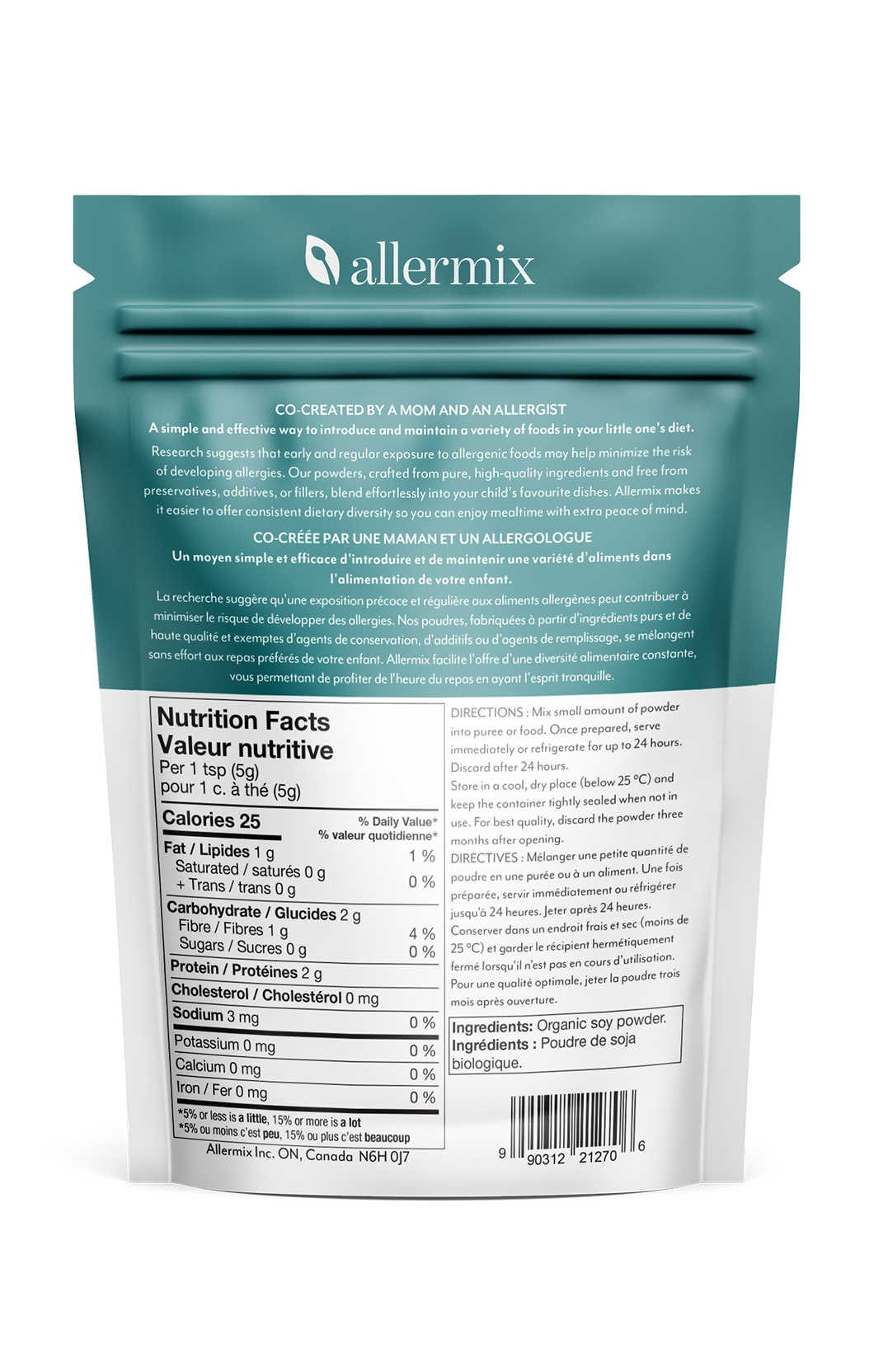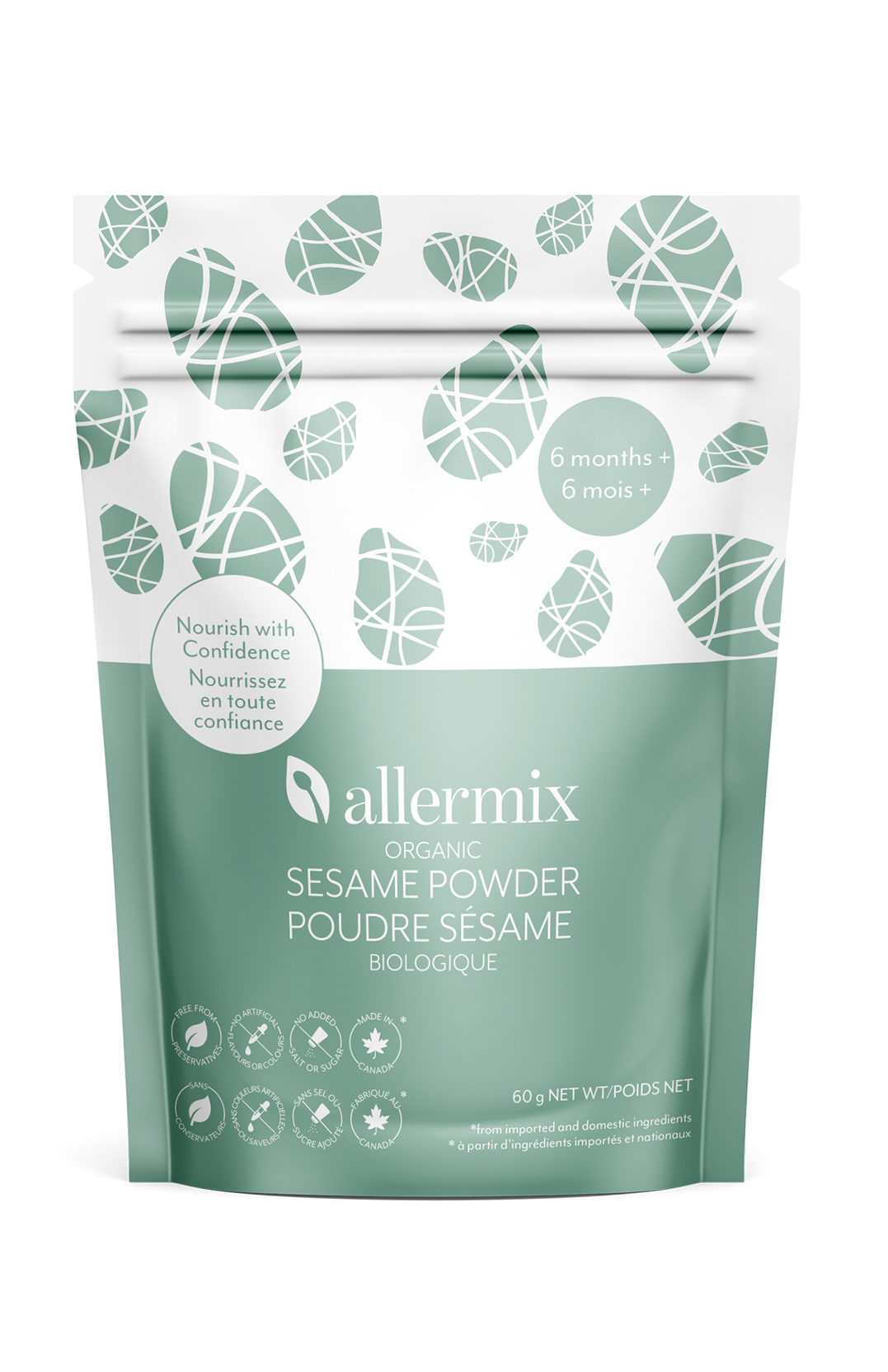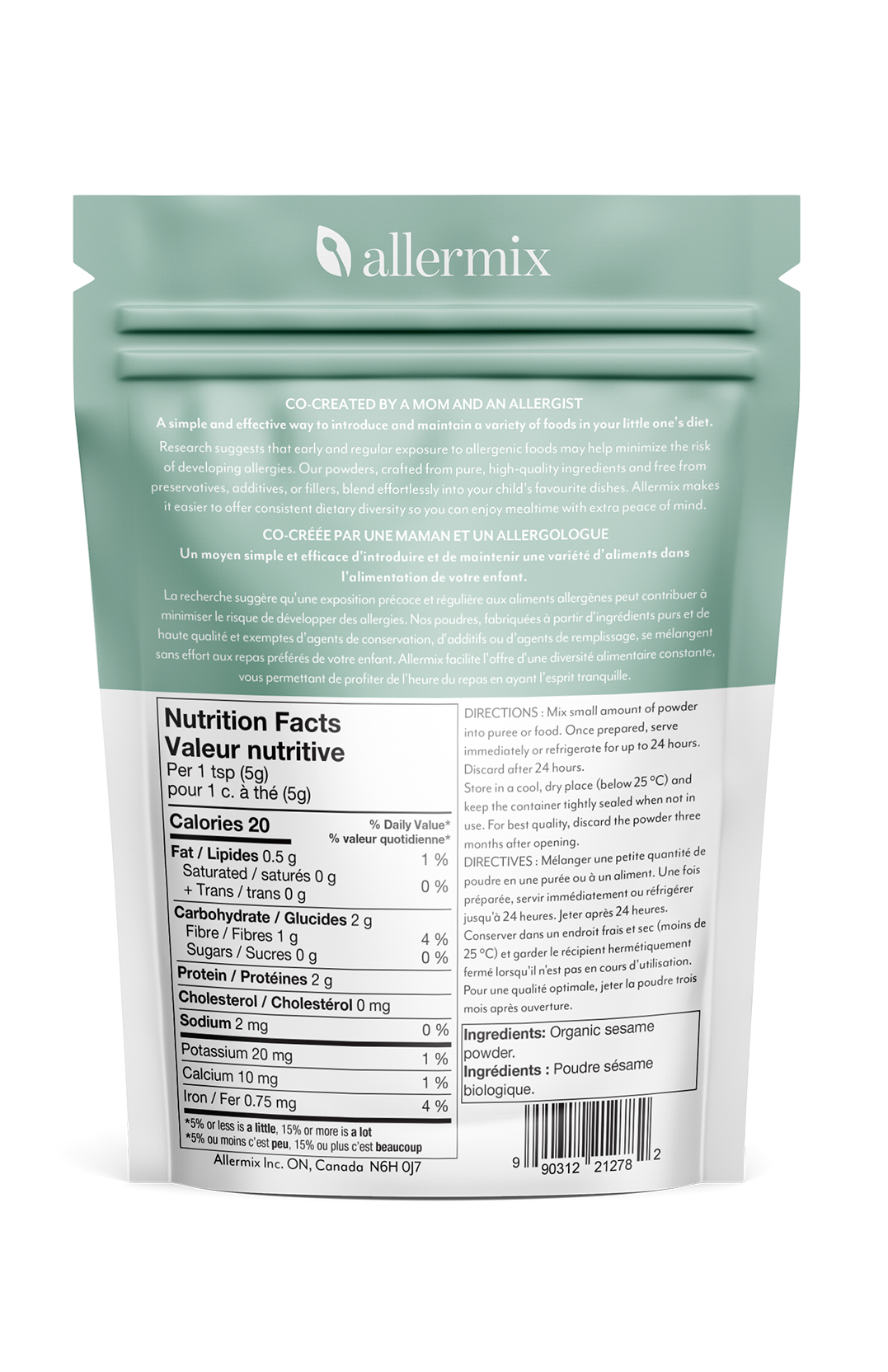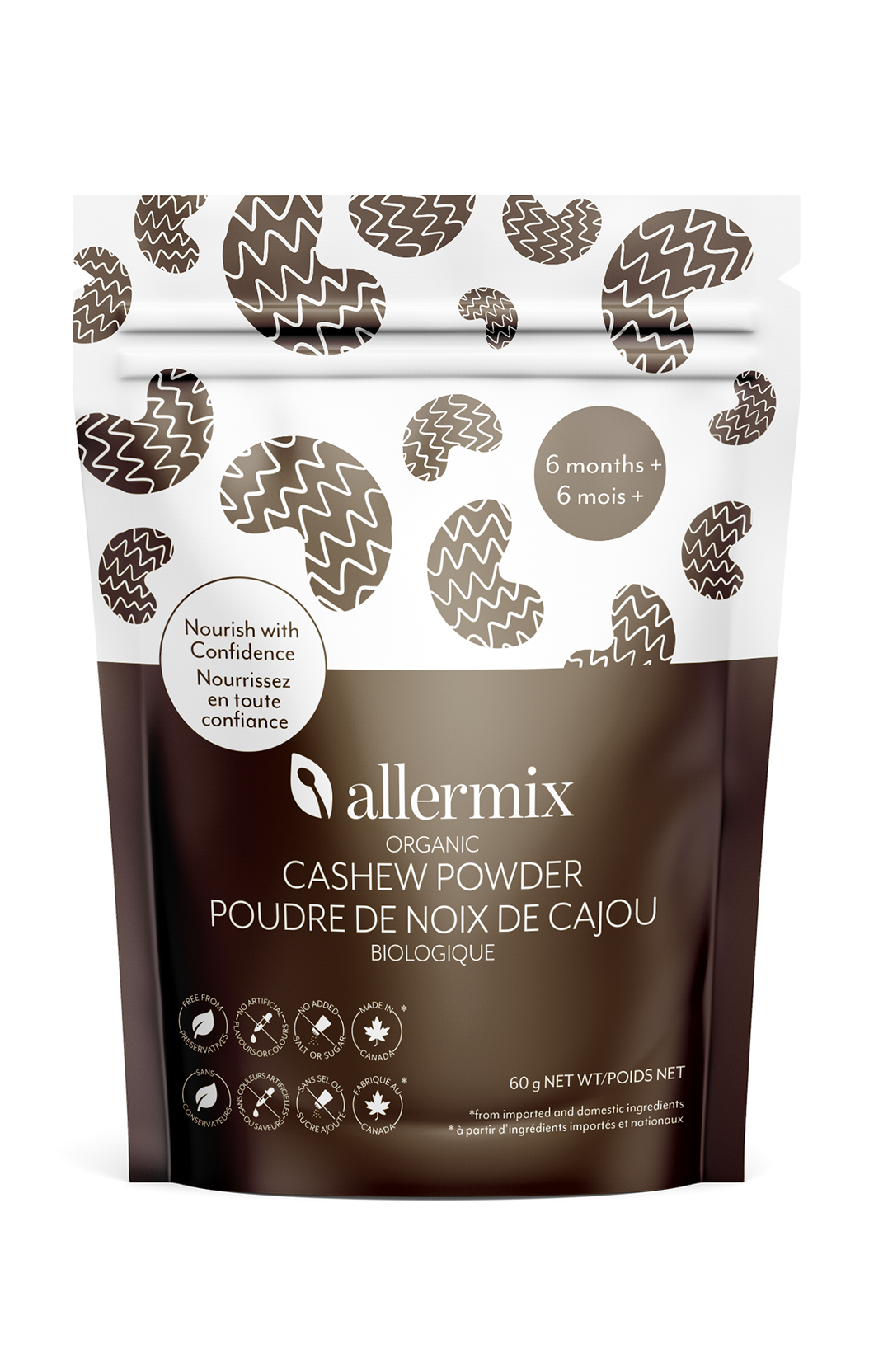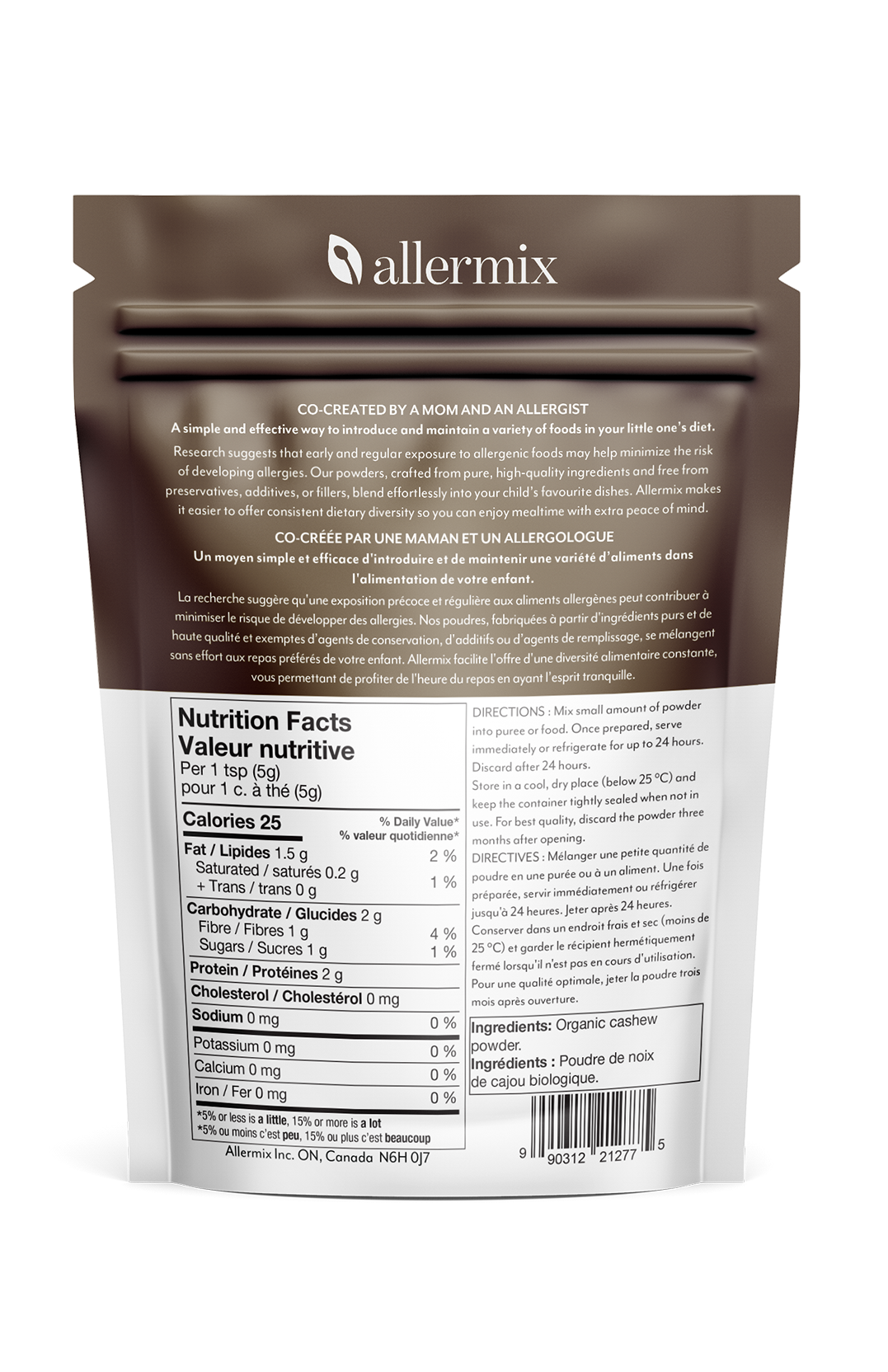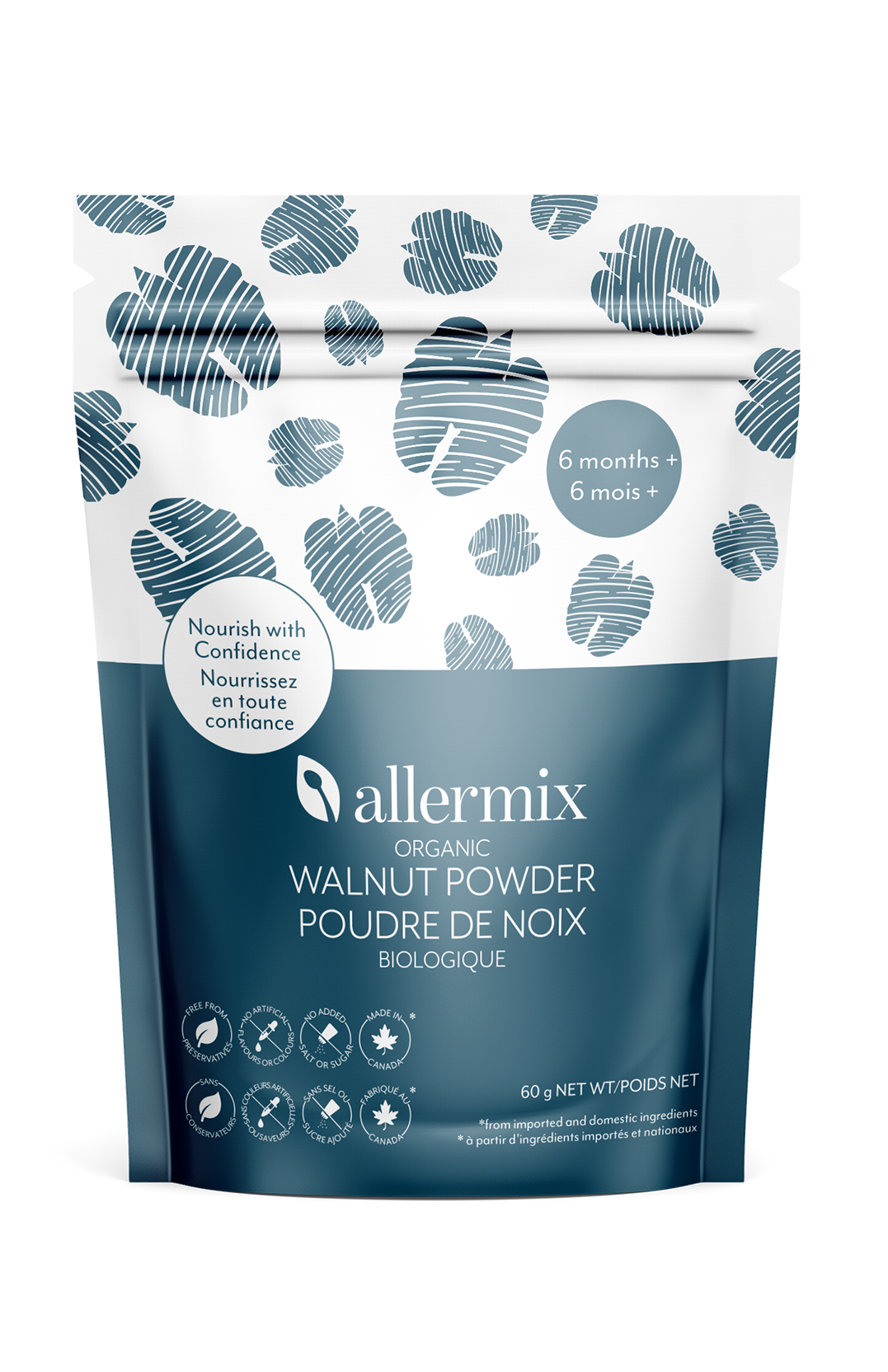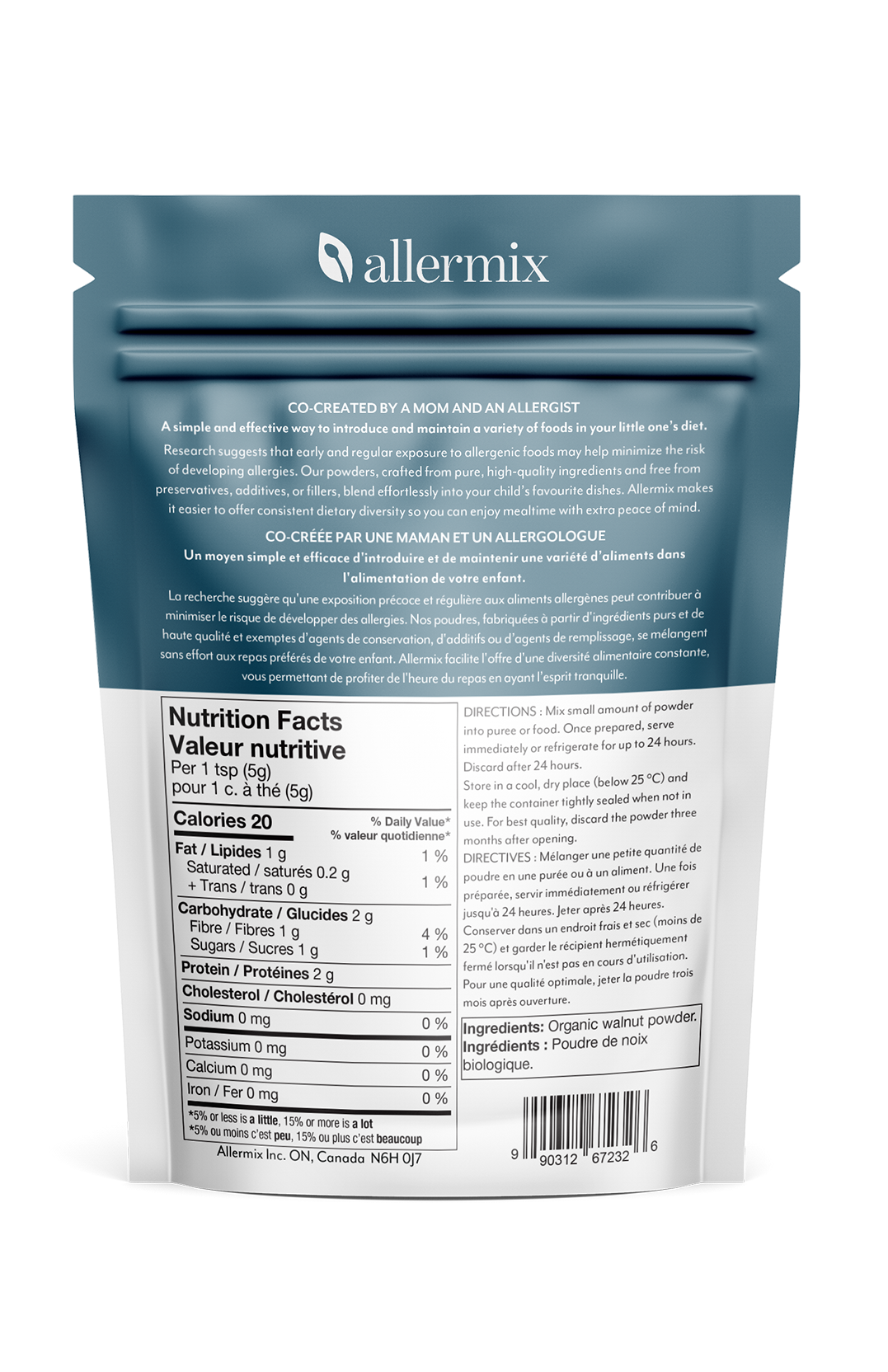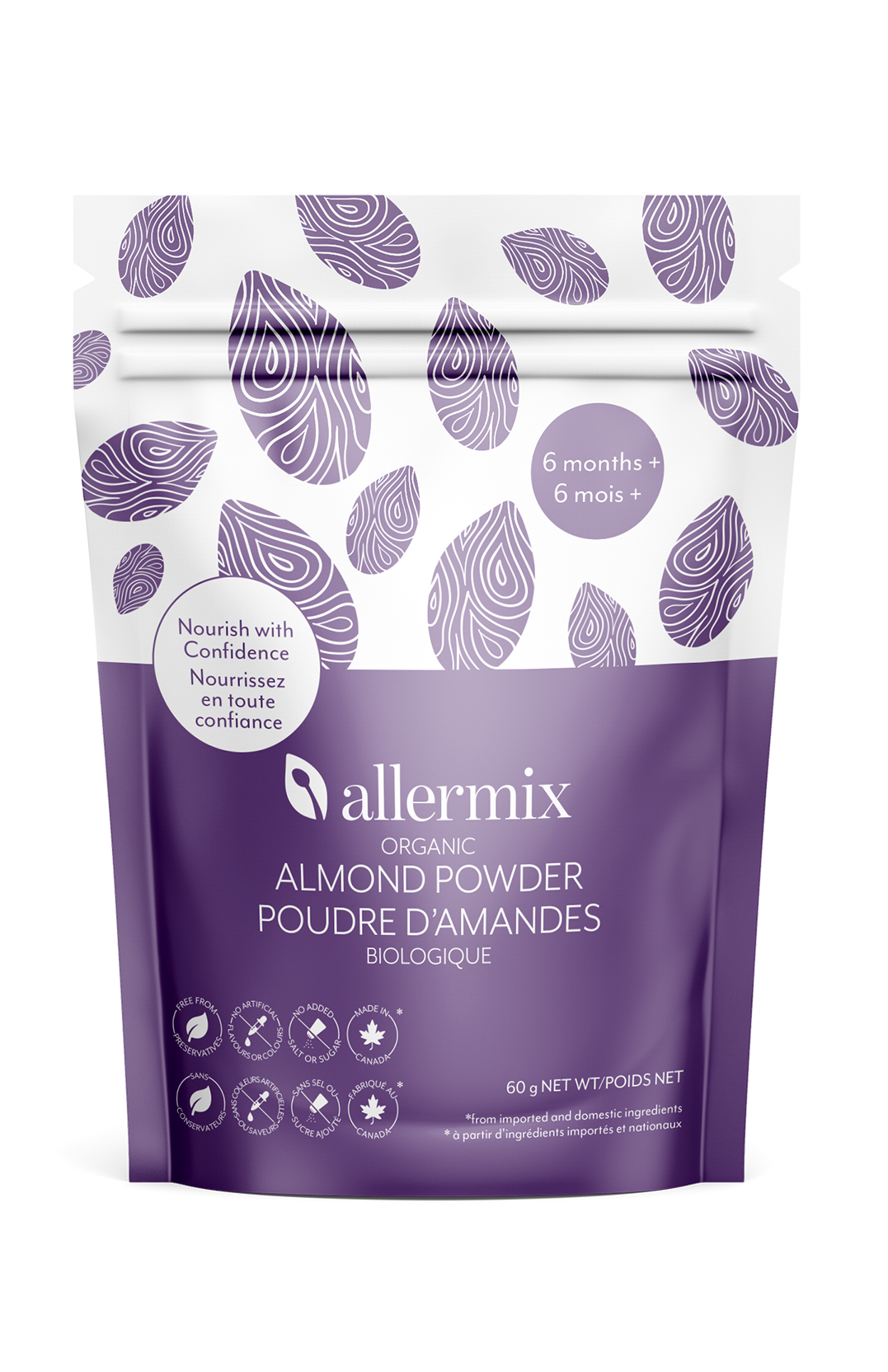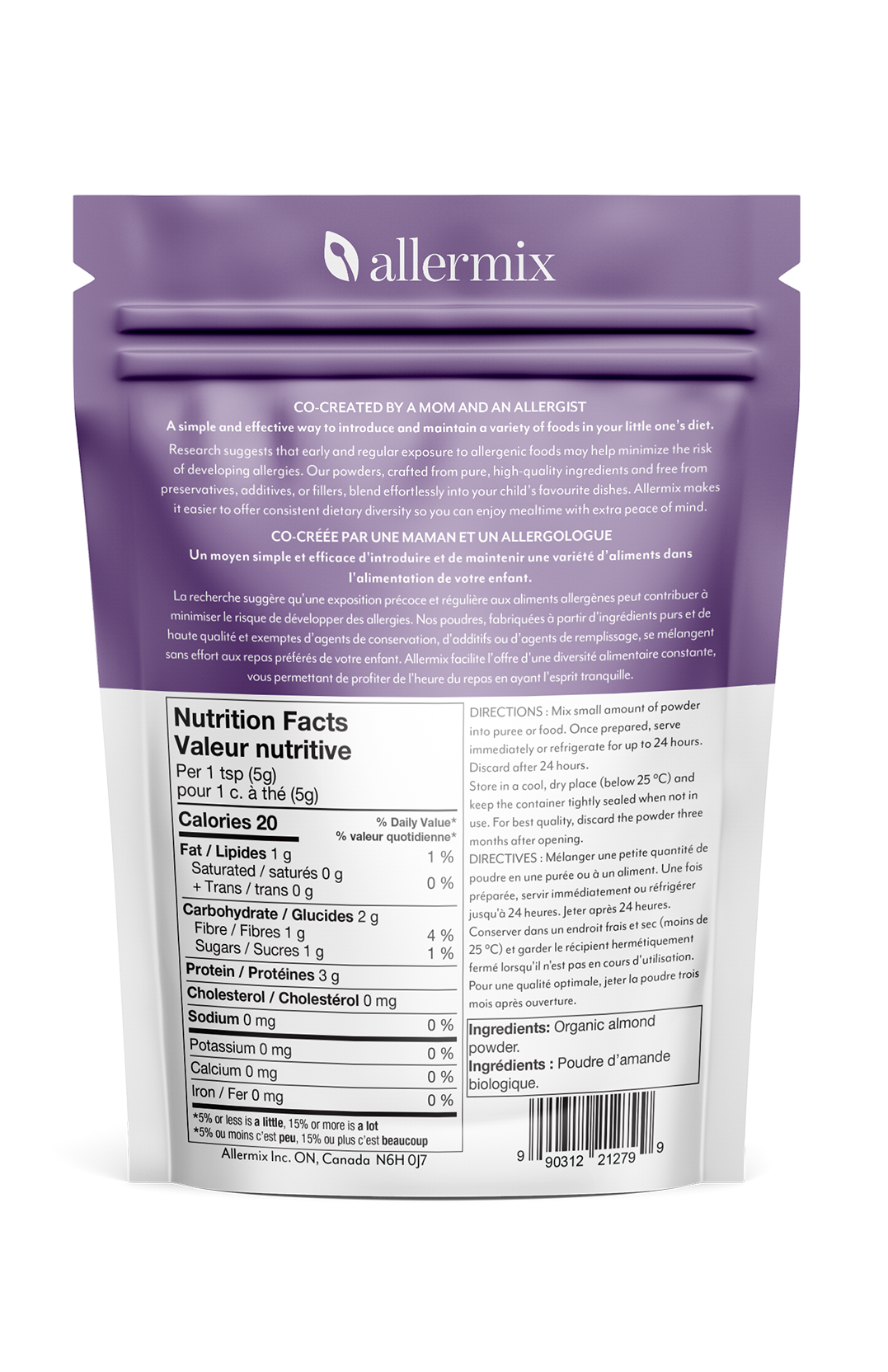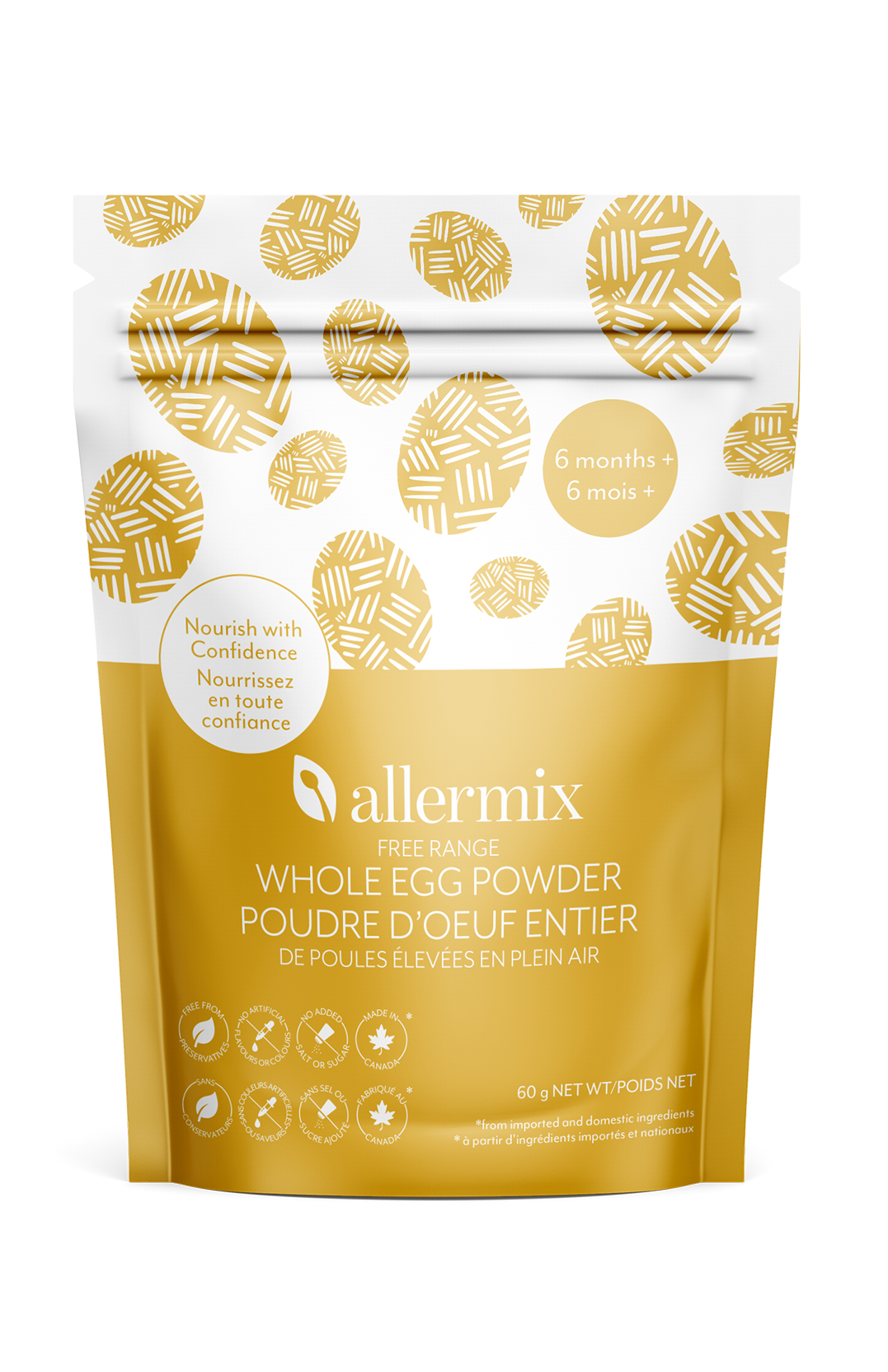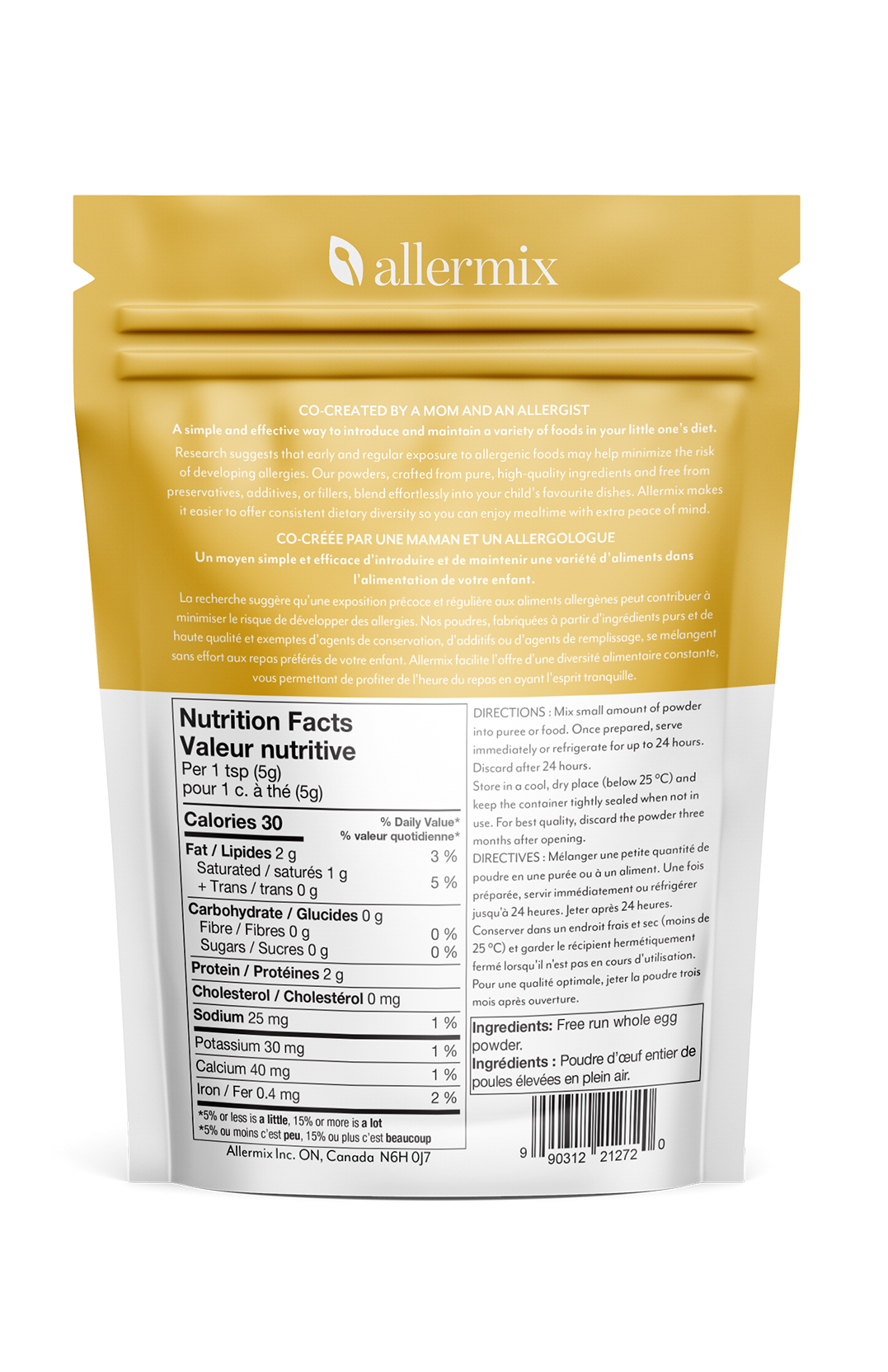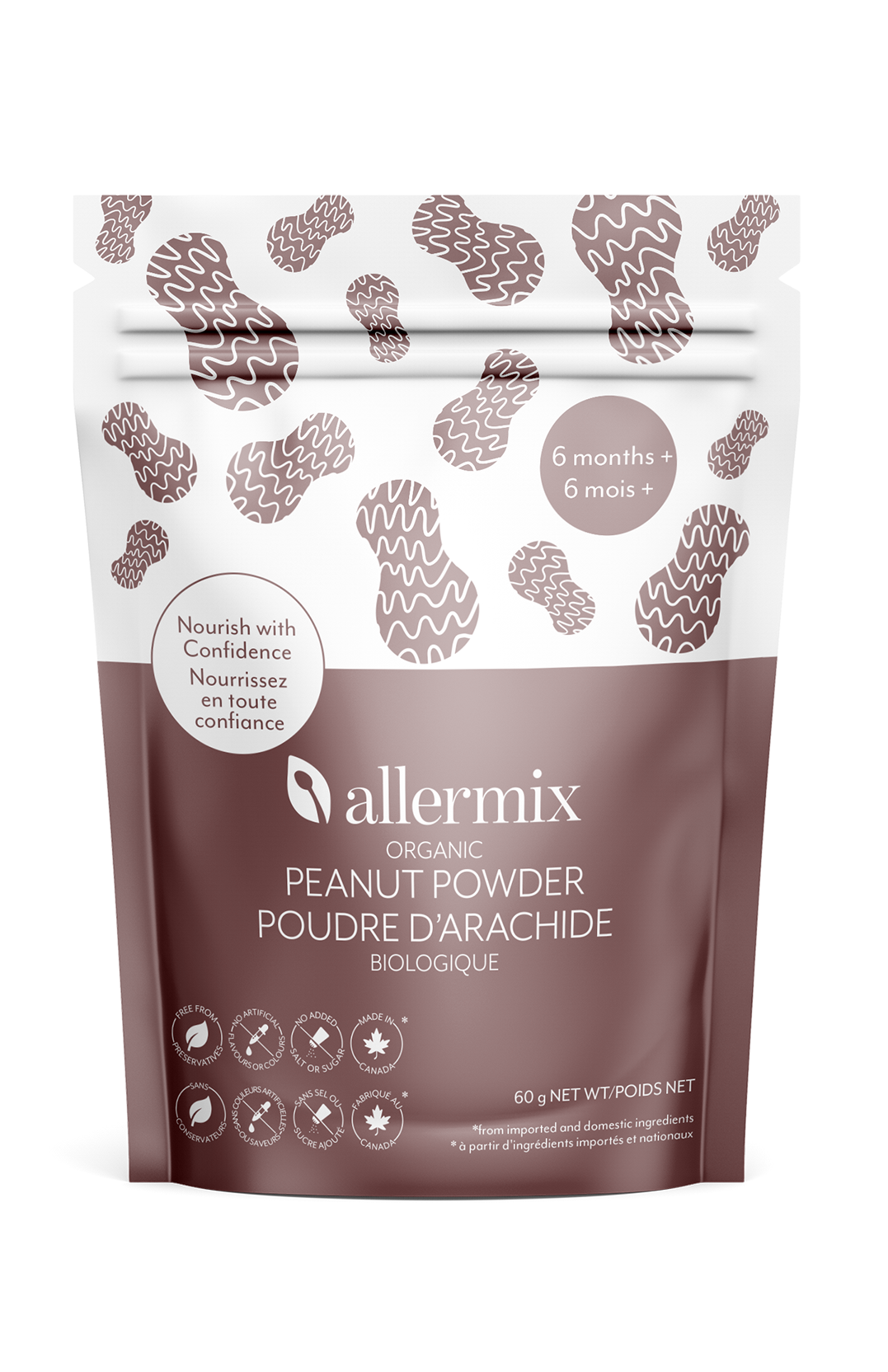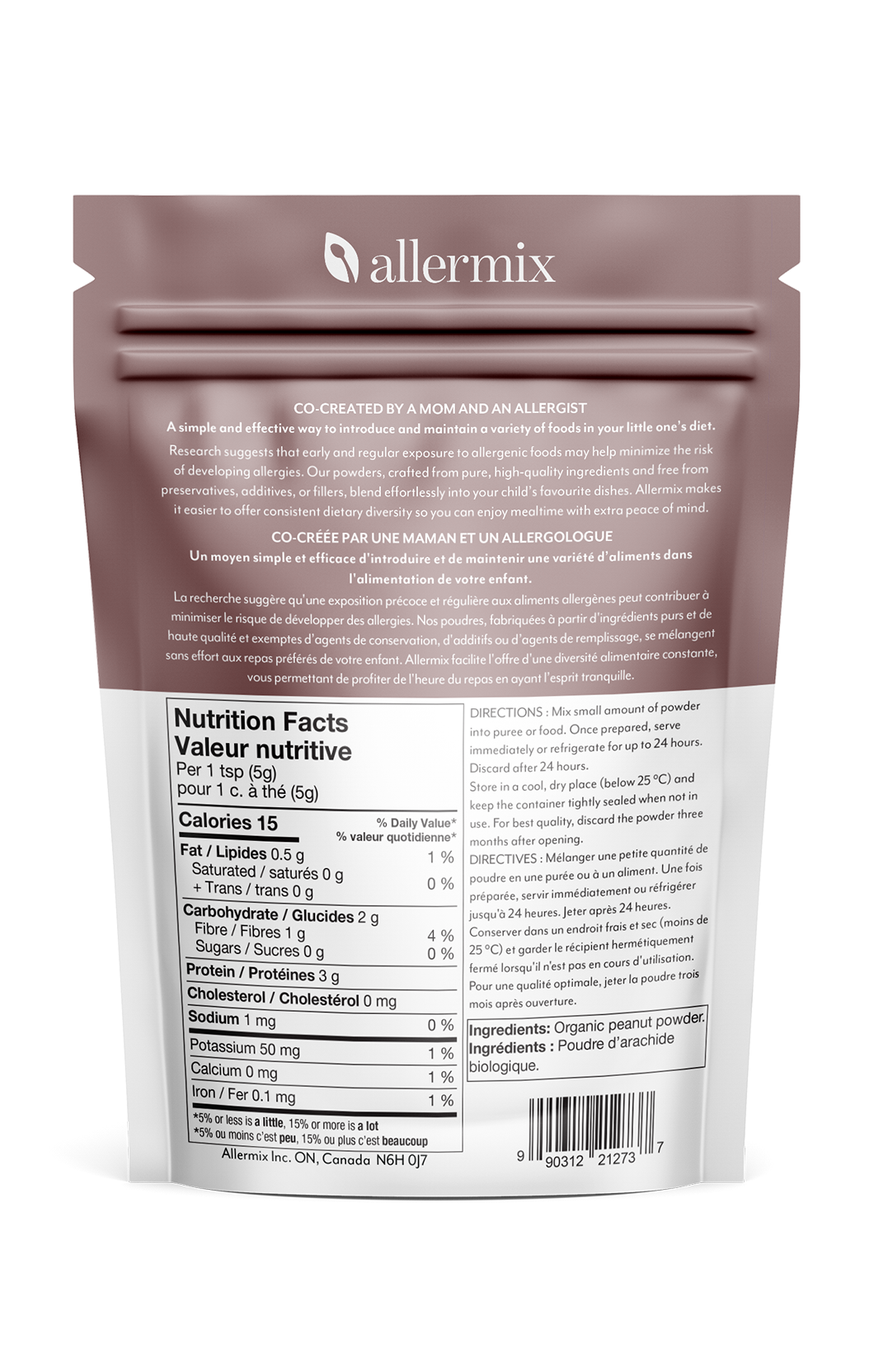Does Breastfeeding Prevent Allergies in Babies?
Reviewed by Dr. R. Zhu, MD, FRCPC, Allergist & Clinical Immunologist
Disclaimer:
This article is for general informational purposes only and is not a substitute for professional medical advice. Always consult your healthcare provider or allergist if you suspect an allergy or have concerns.
Table of Contents
- Can Breastfeeding Prevent Allergies?
- What Does the Science Say?
- How Long Should I Breastfeed to Help Prevent Allergies?
- Breastfeeding and Introducing Food Allergens
- What Else Can Help Prevent Food Allergies?
- Make Allergen Introduction Easier with Allermix
- Final Thoughts
1. Can Breastfeeding Prevent Allergies?
The idea that breastfeeding can prevent allergies is a common question among parents. While breastfeeding offers many benefits, including immune support and bonding, the link between breastfeeding and allergy prevention isn’t entirely straightforward.
2. What Does the Science Say?
Research suggests exclusive breastfeeding for the first 3–4 months may reduce the risk of eczema and early wheeze in some infants. However, breastfeeding alone does not guarantee food allergy prevention. Early introduction of allergens like peanuts and eggs (between 4–6 months) plays a more direct role in building food tolerance.
3. How Long Should I Breastfeed to Help Prevent Allergies?
Canadian guidelines recommend exclusive breastfeeding for about the first 6 months. Continued breastfeeding alongside solid food introduction may support immune development, but there’s no specific “allergy-prevention” duration.
4. Breastfeeding and Introducing Food Allergens
Introducing allergenic foods while breastfeeding may offer some added immune benefit, especially in high‑risk babies. Studies show that exposure to allergens during this window may reduce the risk of developing allergies.
5. What Else Can Help Prevent Food Allergies?
- Start introducing priority food allergens like peanut, egg, tree nuts, and soy around 6 months of age or earlier in high risk babies (but not before 4 months)
- Continue breastfeeding if possible during allergen introduction
- Offer allergens regularly (e.g., weekly) to help maintain tolerance
- Consult your primary care provider or specialist for guidance, especially if your baby has eczema and/or a family history of allergies
Make Allergen Introduction Easier with Allermix
While breastfeeding may support allergy prevention, early food allergen introduction is key. Allermix introduction and maintenance kits, designed by a mom and an allergist, offer pre‑measured servings and easy‑to‑follow instructions to make early food allergen introduction simple and stress‑free.
Final Thoughts
While breastfeeding offers many important health benefits for both baby and parent, it isn’t a guaranteed way to prevent allergies. Current research supports a balanced approach of continuing to breastfeed while also introducing allergenic foods early. As always, discuss your baby’s feeding plan with your healthcare provider for personalized advice.

